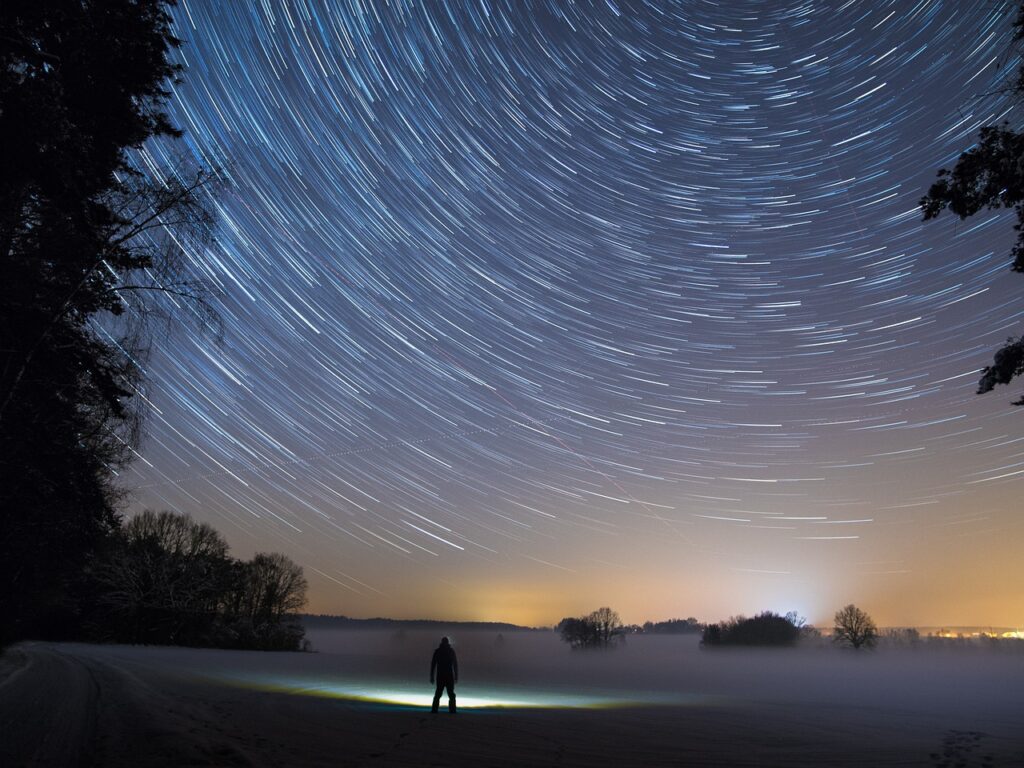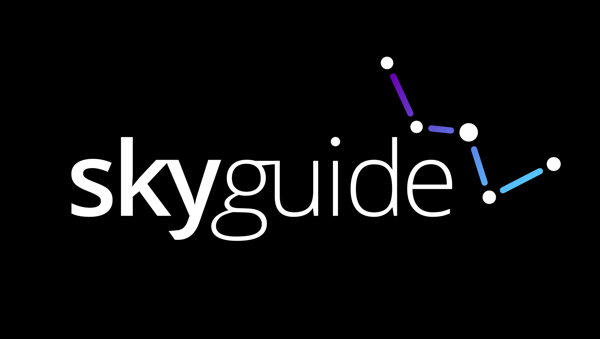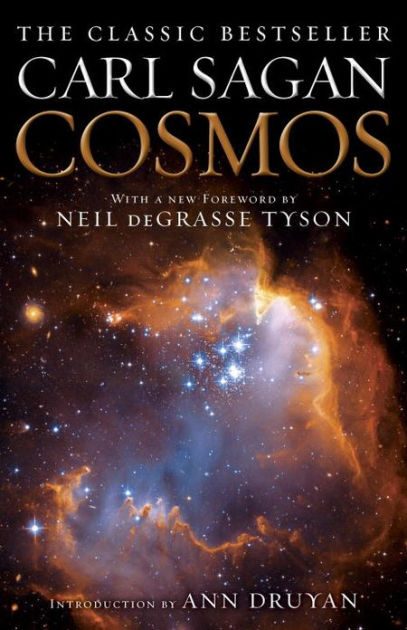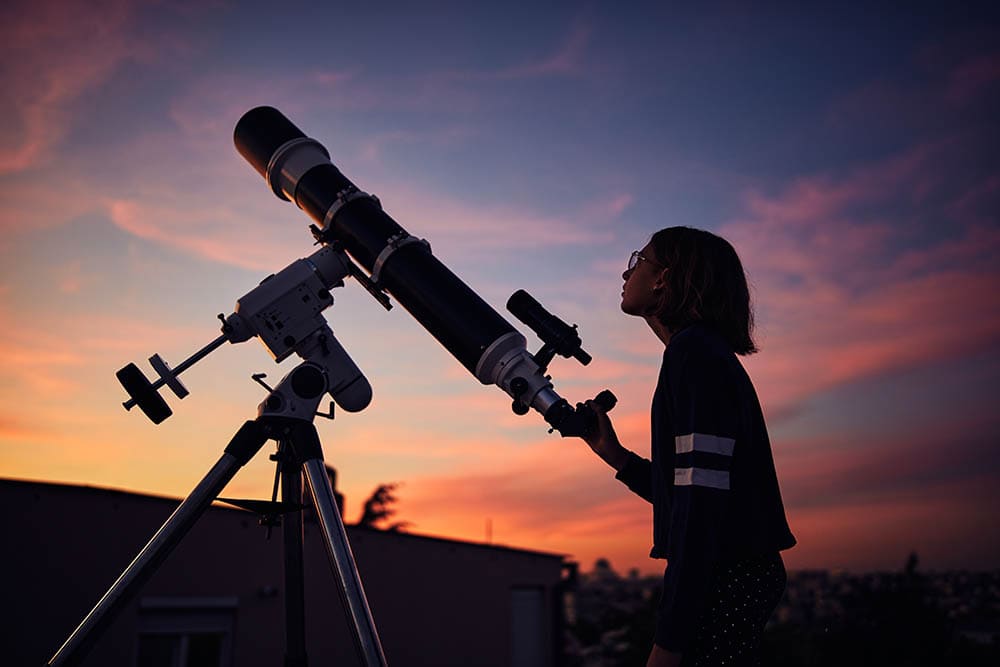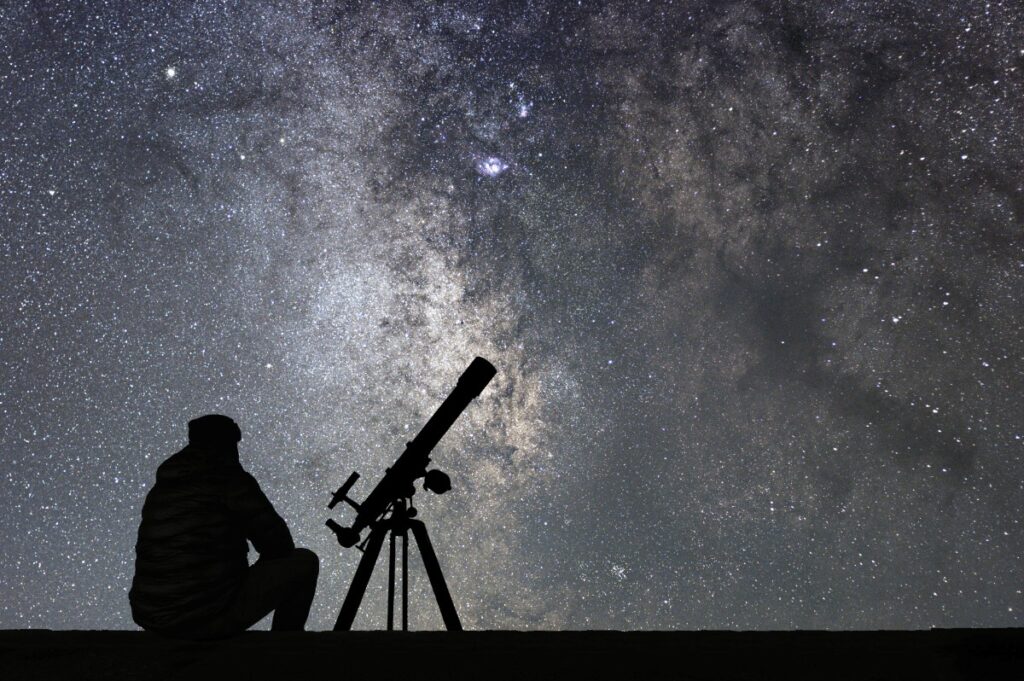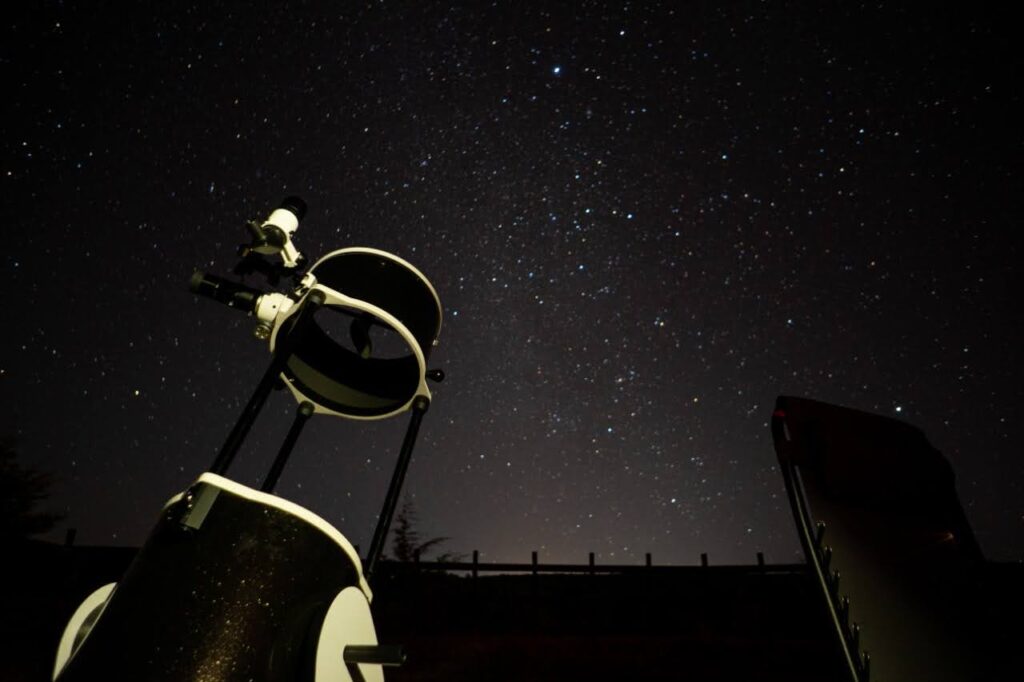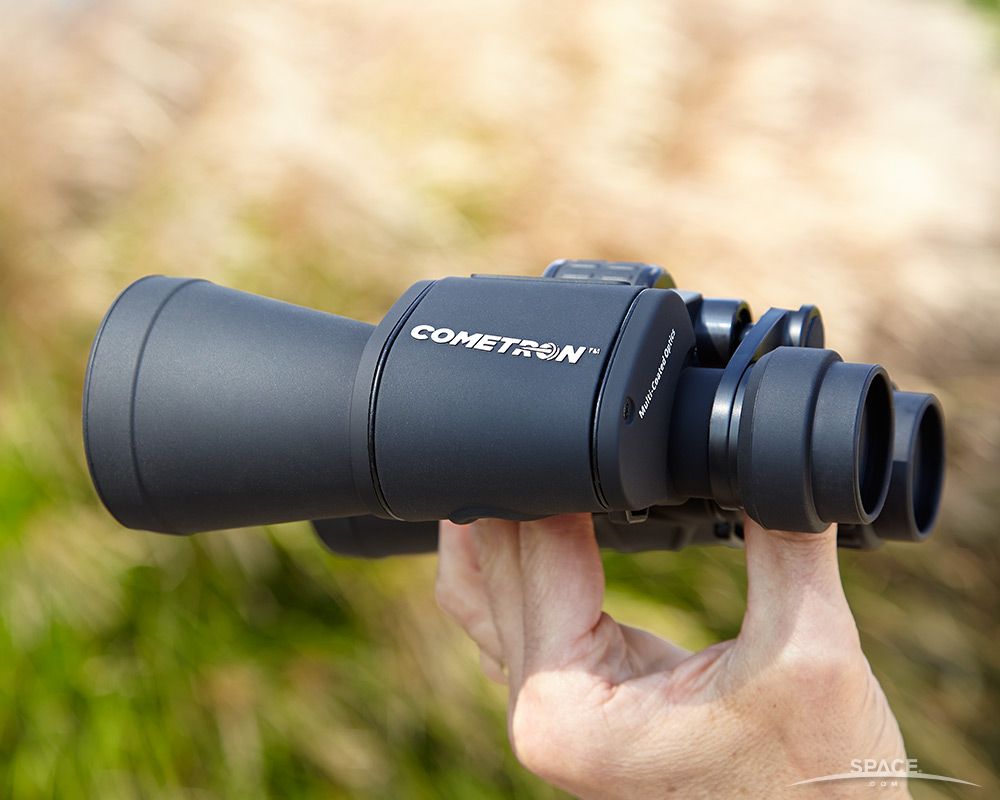Astronomy is a fascinating hobby that allows us to explore and marvel at the vastness of the universe.
If you're interested in getting started in this exciting field, you're probably wondering what equipment you need to begin. Don't worry! In this article, we'll introduce you to the basic equipment that will help you take your first steps into astronomical observation.
- Binoculars: A good pair of binoculars is an excellent starting point for beginner enthusiasts. Opt for binoculars with a magnification of at least 7x and lens aperture of 50 mm. These will provide you with a wider view of the sky and help you easily identify constellations, stars, and planets.
2. Telescope If you want to take your astronomical experience to the next level, a telescope will be your best ally. For beginners, a medium-sized refractor or reflector telescope with an aperture of at least 100 mm (4 inches) is recommended. Make sure to choose one with a stable and user-friendly mount. If you want to learn more about choosing the Perfect Telescope for You, check out this video we created for YouTube:
Si quieres saber más sobre como elegir el Telescopio Perfecto para Tí, mira este video que generamos para YouTube:
3. Eyepieces Eyepieces are essential accessories for the telescope as they determine the magnification and field of view.
Start with a pair of medium-power (25 mm) and high-power (10 mm) eyepieces to get a versatile view of the sky. You can purchase additional eyepieces. If you want to learn more about Telescope Eyepieces, watch this video we created for YouTube: para obtener una visión versátil del cielo. Puedes comprar más oculares más adelante para tener otras perspectivas…
Si quieres saber más sobre Oculares para Telescopio, mira este video que generamos para YouTube:
4. Maps & Apps: Aplicaciones: To navigate the starry sky, it's helpful to have celestial maps or astronomy mobile apps. These tools will assist you in identifying constellations, stars, and planets in real-time. Some popular apps include Sky Guide (my personal favorite), SkySafari, Star Walk, and Stellarium.
Algunas aplicaciones populares incluyen Sky Guide (la que más uso), SkySafari, Star Walk y Stellarium.
5. Books and Educational Resources: Expand your knowledge of astronomy by reading specialized books and exploring online educational resources.
Some recommended titles for beginners include "Cosmos" by Carl Sagan, "A Brief History of Time" by Stephen Hawking, and "The Universe in Your Hand" by Christophe Galfard. «Cosmos» de Carl Sagan, «Breve historia del tiempo» de Stephen Hawking y «El universo en tu mano» de Christophe Galfard.
7. Patience and Curiosity: While not tangible equipment, patience and curiosity are fundamental in astronomy. Exploring the universe requires time and dedication.
Allow yourself to enjoy the process of learning and observation. Don't be discouraged if it's initially challenging to identify celestial objects or if your first photographs don't turn out as expected.
Astronomy is a vast and fascinating field, and each discovery and advancement will bring you closer to understanding the mysteries of the universe.

